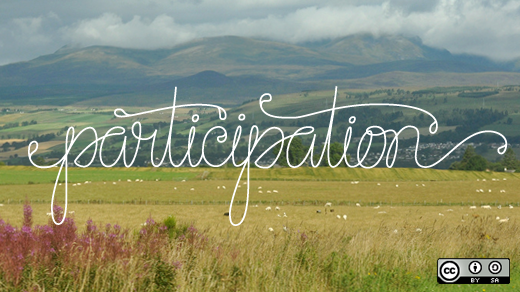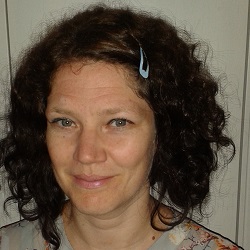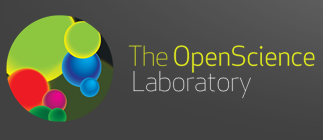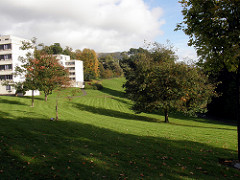The strategy focuses on “a learner journey approach to access” and aims “to remove barriers for underrepresented groups to get to university” including those from low incomes, young adult carers and applicants from schools with traditionally low progression to higher education. In addition the team also support students once they arrive at Strathclyde and ensure they are aware of opportunities such as studying abroad and graduate jobs. The widening participation team engage with colleagues across the institution as well as leading external engagement with a variety of organisations and institutions.
Openness from a Widening Participation perspective
For Stephanie openness is strongly connected to learner context, learner journeys and widening access. How can we minimise the barriers people might face to using open educational materials (OER)? For example, where can the learner access materials, what are the benefits of doing a particular course/using a resource and what are the possible next step options? This integrated approach focuses on “the people using it” and is integral to openness for Stephanie:
“Ideally for me, when used correctly, because I think it’s very easy to say that there’s no financial barrier or password protection, therefore it’s open. Which I don’t think is necessarily the case …there are lots of barriers to accessing higher education … there are multiple barriers. For something to be truly open the people involved in it have to have thought about what those potential barriers are and means of overcoming them.”
Bridging the Gaps: Technology and Widening Access
Stephanie previously worked in widening access in the early 2000’s, teaching on an access programme before spending 10 years working in Higher Education. She reflected on the changes in learning and teaching over that time, for example changes in incorporating or delivering online learning and technology with courses being delivered to campus based students in online only format or online assessments. However, although the delivery of courses was changing there was little being done to prepare new students for these changes or incorporating them into access courses.
“The plan is to harness technology, in every way that we can, so to look at what we do anyway in terms of MOOC and OER, and say ‘okay, how can we employ those in our access activities?’ but also to look at what access activities we are delivering, in schools, colleges, with groups like asylum seekers or young carers, for example. And say, alright but how can we bring in technologies to enhance the provision of what we’re delivering?”
Facilitating Access: Challenges
When creating online courses and materials, Stephanie described how in order for them to be accessible, they should also be directed:
“… it does need to be directed if it is going to be accessible to those who are at the most distance from universities, be that geographically or in communities where people don’t know about universities or there may not be access to computer hardware and software, digital skills or simply awareness that there are such things such as open courses.”
Strathclyde run a number of MOOCs on the FutureLearn platform including Caring for Vulnerable Children, Introduction to Forensic Science and Genealogy: Researching your Family Tree. Stephanie and her team look at what MOOCs are offered and see if they would be of interest to community groups and others. The courses also need to have a wider range of possible avenues highlighted to participants at the end of a course: whilst some might be interested in going on to University, others might be more interested in access courses, want to find out more about funding or see what pathways to study there are with the qualifications that they currently have. Giving people a range of possible ‘next steps’ enables people to explore different options as well as raising awareness of options that they might not have previously been aware.

One organisation that Stephanie and her team collaborate with is Clyde Gateway “…Scotland’s biggest and most ambitious regeneration programme” [REF]. Strathclyde’s MOOC Caring for Vulnerable Children has a good fit with Clyde Gateway’s Families First programme, enabling participants to explore their interest in caring and learning at that level. Strathclyde also work with Glasgow Life to promote the development of digital skills and to enable people to participate in courses by, for example, highlighting that libraries have computers that can be used to access course material. Glasgow Life also run their own courses to help people prepare to use online learning materials. Collaborations such as this also inform what courses might be most useful to learners: many people in libraries are carrying out family history research, for example, and so the Genealogy: Researching your Family Tree MOOC might be particularly useful.
“Working with partners we’re able to publicise the fact that these open access courses exist but also target them to those who are the most interested in them.”
Impact
Although it is early days for measuring the impact of Strathclyde’s new widening access strategy, Stephanie reported that demographic data from FutureLearn revealed that although many learners had at least a Bachelors degree, learners on the Caring for Vulnerable Children MOOC had “…not insignificant numbers [of learners participating] who…have no qualifications.” This appears to indicate that the strategy of reaching out to organisations, highlighting course material that might be useful and then working together to facilitate use of that material was yielding positive results. Stephanie explained:
“…Evaluation is very much part of the project and we’re looking at what we can measure, how we can measure it and what that’ll tell us for the future. Certainly what it’s done is give us specific things to work with partners on … the MOOCs are definitely something you can talk about and work on in terms of ‘here are some flyers, could you put this on your television board’ and that they can see a direct reason to meet with us. So I think already I can see that as a measure of success.”
Facilitating engagement with communities
Stephanie reflected on how opportunities often grew from conversations and that the University developed and widened their existing networks via connecting and reaching out to people with suggestions such as MOOCs. She also noted that doing a MOOC herself had enabled her to both experience and be able to articulate the benefit of such courses better:
“I saw the same with community partners that I’d been engaged with. I’d talked with them about it. They went on FutureLearn, and it wasn’t necessarily any of our courses but somebody came back to me and said I’m a football coach and I noticed that there’s a football coach [course] and I’ve now signed up for that, I’m doing it and really enjoying it. He then got his team to all find themselves a MOOC that they were interested in that wasn’t necessarily anything to do with their jobs but just go and do it for that experience of it. They were then more able to talk about it a lot more.
So I would say go to your existing networks and let them lead you further and further away from the university, not necessarily with an idea that open access will emerge but the likelihood it will as a conversation about bite-size or no-risk learning. But also try and get your original networks to engage with something to do with online learning, something to do with open access, that’s going to appeal to them and that allows you to talk about it a lot easier and for them to articulate the benefits to their wider group.”
Next steps
In addition to measuring the impact of the initiatives already mentioned, Strathclyde are developing a bridging course for students joining the University. Designed to be taken 4-5 weeks prior to starting university the course will help students transition more effectively into higher education. Stephanie and her team are looking at whether the material can be tailored to particular groups, whether parts of the course can be made open, could accompany access courses or whether it could be made open to underrepresented groups of people who might be considering higher education study.
The University’s widening participation strategy involves working closely with colleges as part of a unique agreement with FE institutions in Scotland and other work includes plans to highlight MOOCs and OER as part of the University’s work with FOCUS West who work with 37 schools in the West of Scotland who have low numbers of students progressing to further education.
Read more about widening access at Strathclyde University.
Photo/Image credits: Stephanie (via her Strathclyde profile) and Student Participation in open source projects (a professor's perspective) via opensource.com (CC-BY-SA 2.0 Generic)
Originally published on 7 March 2016 - 11:36am by Beck Pitt



